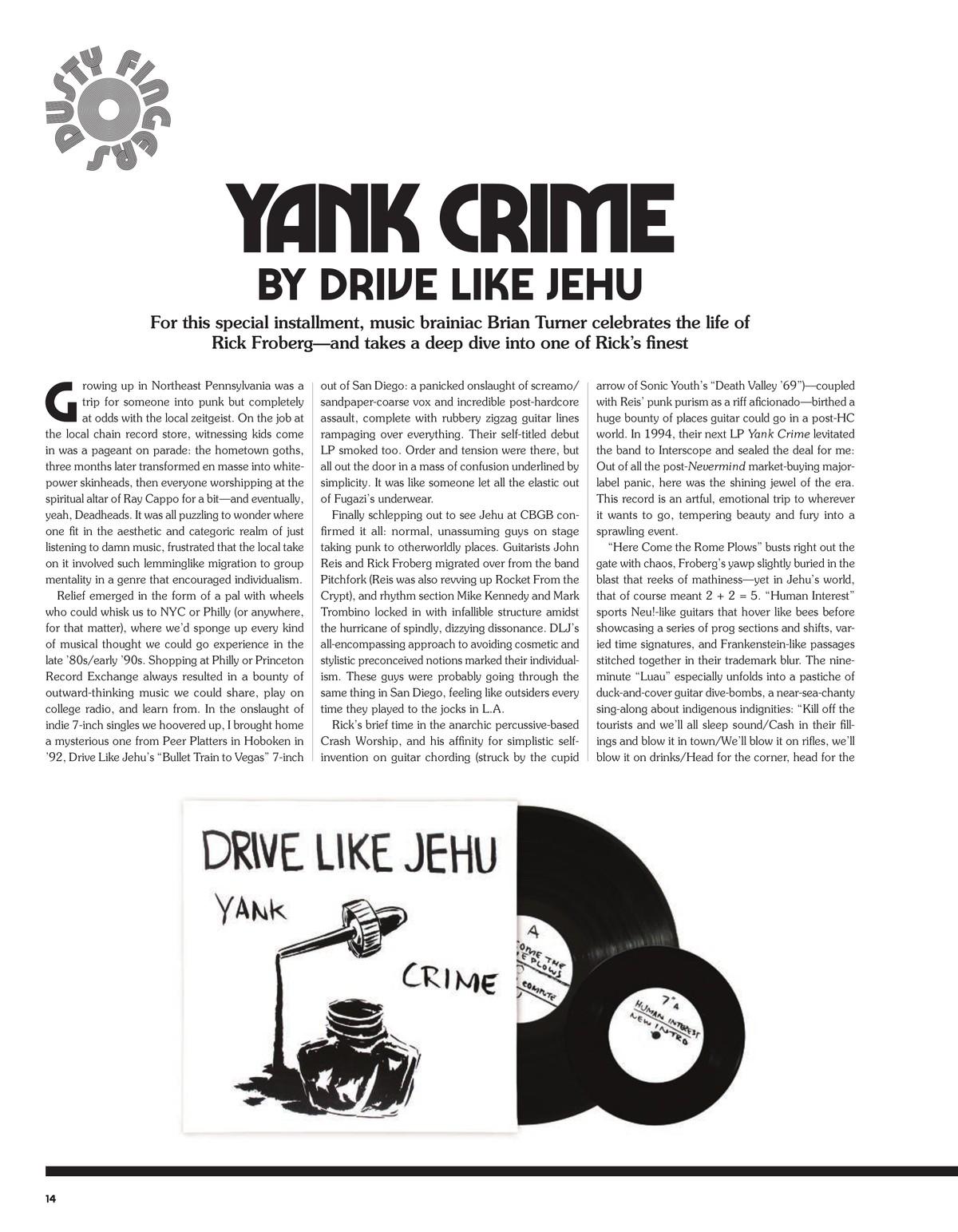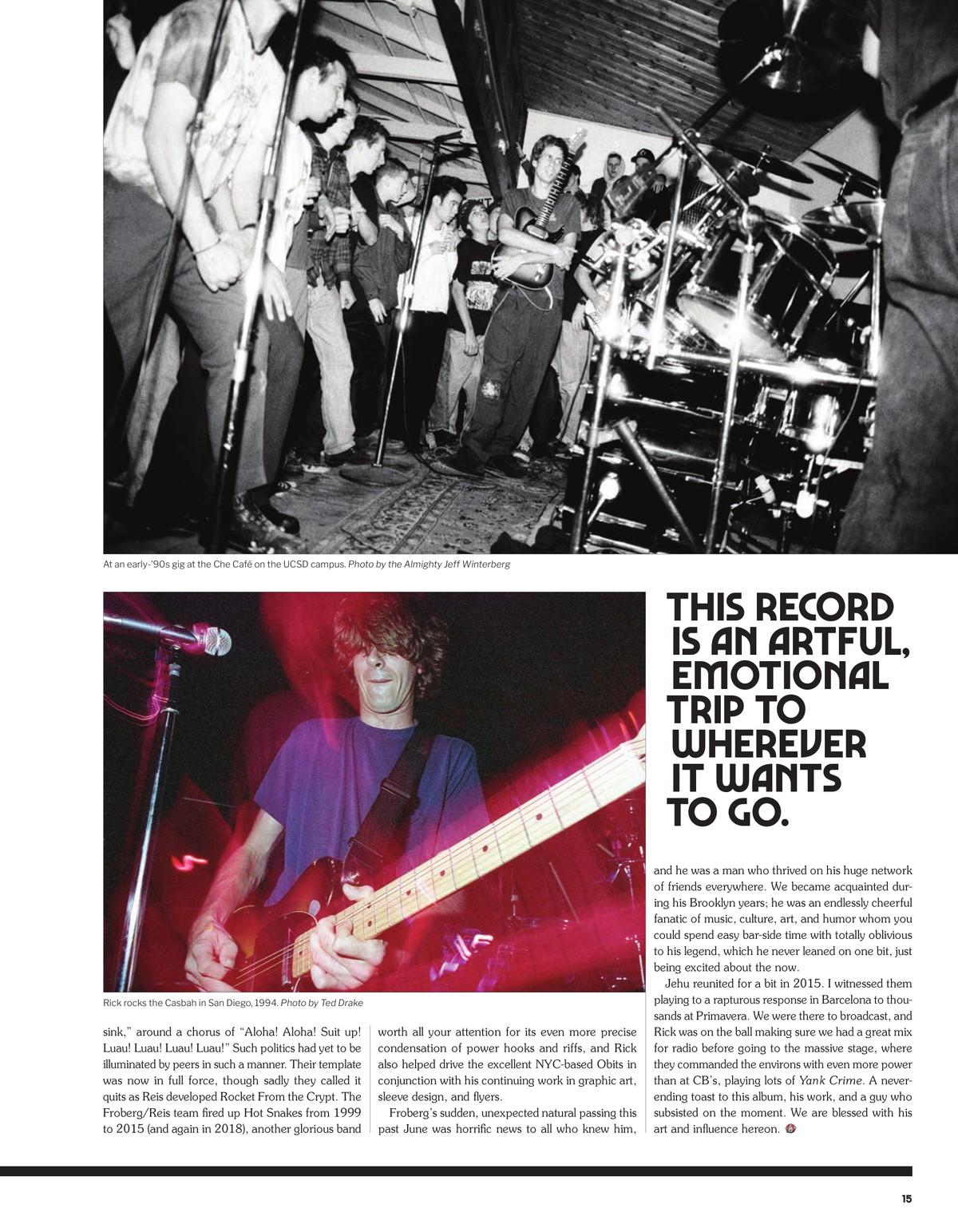Dusty Fingers
YANK CRIME
For this special installment, music brainiac Brian Turner celebrates the life of Rick Froberg - and takes a deep dive into one of Rick's finest
December 1, 2023


Loading...

For this special installment, music brainiac Brian Turner celebrates the life of Rick Froberg - and takes a deep dive into one of Rick's finest


Loading...